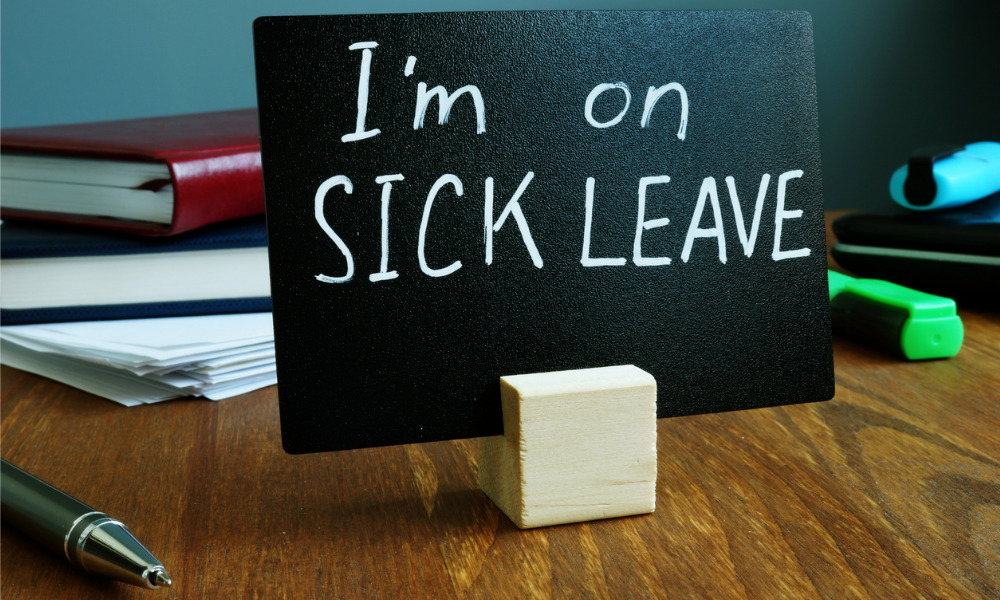
Sick leave is on the rise this winter - and with it are concerns over legal obligations

The pandemic may be winding down, and employees seem to be returning to their workplaces – but that doesn’t mean it’s all smooth sailing for HR. Sick leave is on the rise, as it normally does when the weather turns. For employers, walking the fine line between being empathetic and keeping up productivity can be tricky - especially if they’re unsure of laws around sick leave entitlements.
Ontario recently announced an extension to their paid sick leave – pushing the date back to March 2023. It’s good news for stressed out employees, but potentially pretty costly for both parties.
“The government will reimburse the employer for three days but the mandatory isolation period is five days – furthermore, it’s possible for an individual to catch COVID more than once,” explained Janet Candido, founder of Candido Consulting Group. “Under these scenarios, employers may have an individual coming to work while still sick because they can’t afford to lose the wages. A bigger issue with the program is that employees (or their families) get other illnesses that they should stay home for, however the government won’t reimburse the employer for an employee staying home with a cold, for example.”
In some cases, where an employee is off of work for an extended amount of time, employers are required to hold the role. But for how long?
“At common law, where an employee can no longer provide the service for which they were contracted to an employer, that employment may be deemed ‘frustrated’, which results in the end of the contract with payment only of the employees’ entitlements under the Ontario Employment Standards Act,” Lorenzo Lisi, Partner at Aird & Berlis, told HRD.
“However, this common law right of an employer to simply end employment to an employee who cannot return to work is significantly curtailed by the Ontario Human Rights Code (the “Code”) which provides that an employer is required to accommodate a disabled employee unless the employees’ needs cannot be accommodated without undue hardship on the employer considering the cost, outside sources of funding, if any, and health and safety requirements, if any.”
Read more: The real reason your employees quit
With winter on the approach, colds and flus seem to spread like wildfire. Employees are naturally more likely to request time off – meaning morale and productivity often takes a hit. So how can leaders ensure their people stay focused without burning out?
“The emphasis must be on putting people first,” Dr. Jarik Conrad, VP of the human insights and HCM Advisory team at UKG, told HRD. “HR Leaders must step back and consider the big picture to understand why people are getting sick in the first place and initiate evidence-based interventions that tackle the root cause. Solid wellness programs can have an impact, as well. In a recent UnitedHealthcare study, over half of the employees said that wellness programming helped their productivity level and a third said that it decreased their sick days.
“Moreover, there must be some intentionality around the importance of teamwork across a distributed workforce. Of course, technology can be critical in enabling collaboration at scale, which also increases productivity.”
Read more: WestJet suspends flights amid staff shortage